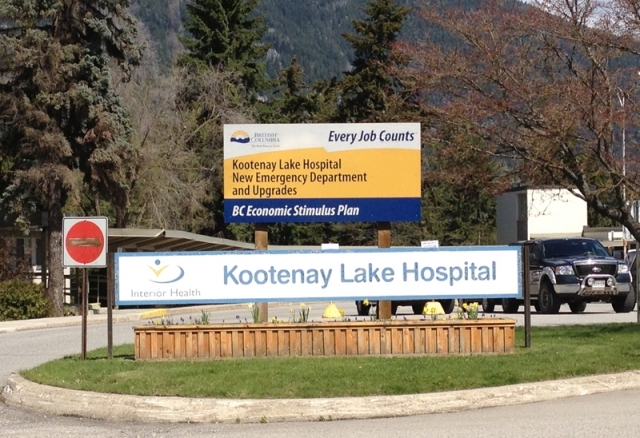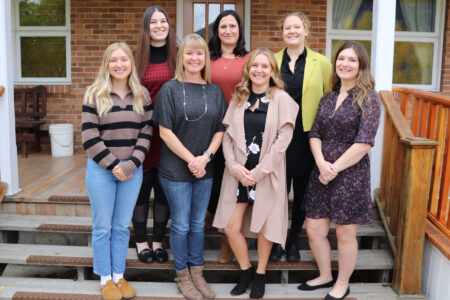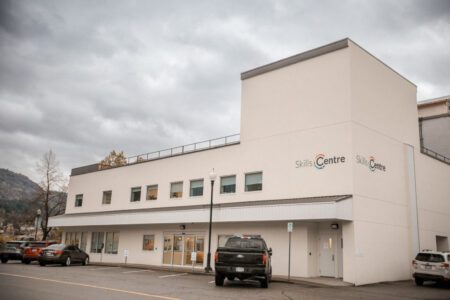IHA wrings out Nelson laundry service and prepares to cut 29 jobs in the city
The fate of Kootenay Lake Hospital’s laundry services has all come out in the wash.
On Tuesday afternoon the Interior Health Authority (IHA) has elected to contract out hospital laundry services for Nelson and four other communities, meaning 29 job losses in the city.
Interior Health’s board of directors and the health authority reached a 20-year agreement with Ecotex Healthcare Linen Service Inc. on Tuesday to provide the majority of linen and laundry services through a centralized Kelowna-based facility, supported by regional distribution centres.
“A clear case exists to proceed with outsourcing laundry services at our major facilities,” said board chair Erwin Malzer in a statement.
“With an anticipated savings of about $35 million over the life of the contract we will be able to increase our investment in facilities and equipment to support direct patient care, including necessary upgrades and expansions of our emergency departments and operating rooms.”
Interior Health had identified that the laundry service facilities in Nelson were aging and would require significant investment to bring them up-to-date. It was estimated that a $10 million investment over 10 years was required to upgrade and replace any of the aging equipment.
As a result, the IHA began to explore the best options for delivering the service, including going to the private sector to see what companies had to offer.
But the decision to contract out hospital laundry services is deeply disappointing news for more than 100 workers who will lose their jobs in five communities — including 17 full time and 12 casual jobs in Nelson’s Kootenay Lake Hospital — said the Hospital Employees’ Union.
“Over the past year, there’s been a groundswell of public concern about the economic impact privatizing hospital laundry will have on Interior communities,” said HEU secretary-business manager Jennifer Whiteside.
“Privatizing a public, in-house hospital service that IHA admits is running efficiently doesn’t make sense. Not for the patients and surgical teams who rely on timely, sterile linens. Not for the people who do this vital work. And not for the communities that will be impacted by job loss.”
Although laundry services in the principle sites — Kelowna, Kamloops, Nelson, Penticton and Vernon — will be privatized, services in six smaller communities will remain in-house. They are Golden, Ashcroft, Princeton, 100 Mile House, Lillooet and Williams Lake.
In November, Simon Fraser University economist Marvin Shaffer concluded that IHA failed to establish a valid business case for privatizing hospital laundry services, following his review of IHA internal documents obtained through the Freedom of Information process, said Whiteside.
“It’s astounding to us that the IHA has demonstrated such disregard for the quality of service our members work so hard to provide, and the economic well-being of the communities in which they work,” says Whiteside.
Tuesday’s decision by the IHA deflates a statement made in early December by the its new president and chief executive officer Chris Mazurkewich when he said the social equation would factor into the recommendation given to the IHA board in March when they were called upon to decide the future of laundry services at Nelson’s Kootenay Lake Hospital.
Mazurkewich said there was the cost of the people, the cost to the community, and the intrinsic value of the service to consider if it was lost.
“You can’t quantify that,” he said in his first visit to Nelson in his new position. “But there is an ethical consideration in what you are doing and how you are doing things and that has to be weighed.”
The IHA first notified the union last fall that it was considering the privatization of hospital laundry services — at five major hospitals in Kelowna, Vernon, Kamloops, Penticton and Nelson, along with services in six smaller communities — and would be issuing a request for solutions, with a decision expected late summer.
But pursuant to the provisions in the collective agreement, a 90-day consultation process between the IHA and the union took place, said Whitehall, a process that was confidential and one neither party could comment on.
The outcome of that initial process was delayed, she said, until the IHA came out with a statement in late November.
Whitehall said the union had been clear that the service should remain in-house as the IHA had publicly declared that the current laundry service — performed by HEU members — is “efficiently run,” and that the IHA’s decision to privatize had nothing to do with staff performance.
The IHA had looked at outsourcing laundry service in the region nine years ago — a move already instituted by other health authorities — and the result was an improvement in productivity and made the service competitive with the private sector at the time.
The laundry service was kept in house. However, it was noted that at some point capital infrastructure — and its possible replacement — would have to be addressed.
In late spring a delegation of Hospital Employees’ Union laundry workers presented their 12,423-name petition to NDP MLAs Michelle Mungall, Jennifer Rice and opposition health critic Judy Darcy on the steps of the legislature, prior to being tabled during Question Period.
The petition called on government to halt the Interior Health Authority’s plan to privatize hospital laundry services in all 11 communities.
opportunities to deliver services in the most cost-effective manner possible.
The transition of the service to Ecotex will take place by summer, 2017.
Story originated at The Nelson Daily


























